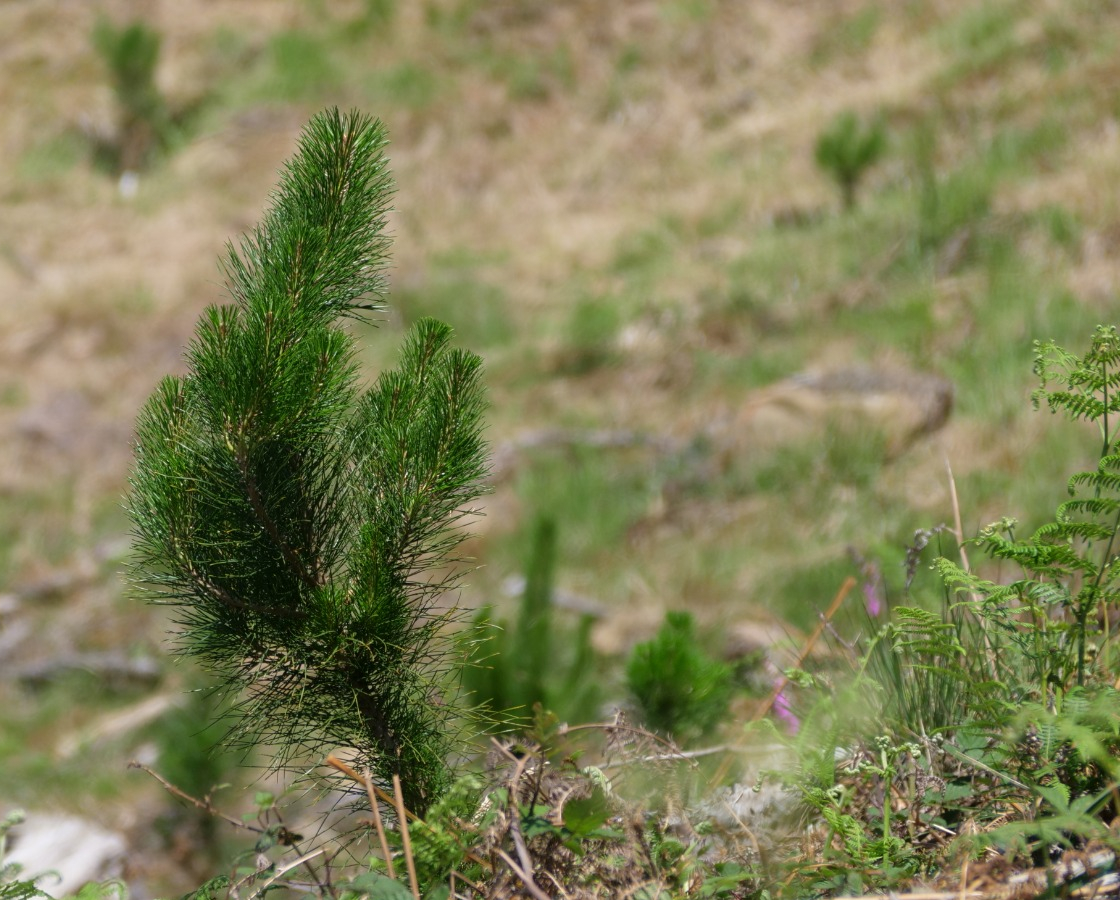NEW
‘Super’ trees against global warming
30 May 2022‘Super’ trees against global warming
- This morning in Llodio (Alava), NEIKER has presented the first European plantation of radiata pines obtained using somatic embryogenesis technique
- This technology makes it possible to multiply high-yield pines that can address global warming and that have exceptional characteristics such as tolerance to high temperatures, water shortages or poor soils.
- This milestone was achieved within the framework of the MULTIFOREVER project to ensure forest health against climate change
- The plantation has more than 800 pines that, after they are obtained in vitro at the laboratory, have shown complete adaptation to the forest
Planting trees and improving forest areas with plants that are more tolerant to the new conditions caused by global warming has become a challenge on a world level. To achieve this, the countries that are more advanced in forestry are combining classic genetic improvement with new advanced biotechnological tools such as in vitro vegetative propagation or somatic embryogenesis, to be able to cope with these new forest conditions such as temperature increases, water shortages and soils more lacking in nutrients.
In this context, this morning the NEIKER technology centre, member of the Basque Research and Technology Alliance (BRTA), presented the first European plantation of the variety of radiata pine, which dominates forestry plantations in the Basque Country, grown in the laboratory and propagated using high-yield pines using biotechnology, specifically, the technique of somatic embryogenesis.
This initiative, presented this morning in Llodio (Alava), has been developed within the framework of the MULTIFOREVER project, funded by the European Union. It aimed to develop a strategy based on biotechnology, that would ensure the genetic resources of valuable varieties of conifers such as the pine, reducing dependence on seed availability, while allowing the propagation of the best high-yield trees within its genetic improvement programme. These genetic improvement programmes seek individuals with improved characteristics and propagates and multiplies them to guarantee forest health.
From the laboratory to the forest
The plantation has more than 800 pines that have been grown by the technology centre by in vitro vegetative propagation, known as somatic embryogenesis. This technique makes it possible to obtain many copies from one high-yield or elite tree. Paloma Moncalean, researcher from NEIKER’s Department of Forestry Science and project leader explains that this is a revolutionary milestone as “this technology has enabled us to obtain a large amount of trees from one elite individual, unlike traditional techniques in which one seed can only produce one tree”.
In addition, to be able to obtain more specimens from one single seed, this technique enables the speed of the vegetative propagation to be increased. “In a conventional program of genetic improvement the trees can be put on the market in 18-20 years. Meanwhile, with this in vitro technique the timeline can be cut to 7-8 years”, states Moncalean. Similarly, this technique also makes it possible to freeze the plant matter obtained in the laboratory so that more copies can be generated in the future.
This leap from the laboratory to the forest offers more advantages for the forest timber sector as it helps multiply individuals that show outstanding characteristics such as tolerance of high temperatures, water shortages or poor soils, making them true ‘super’ trees, able to overcome diseases linked to future climatic conditions.
Improved forests against global warming
Europe is one of the regions that is most feeling the consequences of global warming and its forests are not immune to these new conditions. In this regard, Spanish forest areas sequester almost 800 tonnes of carbon in both the overhead mass and in the roots, which illustrates their importance to the planet. Therefore, it is necessary to plant trees with characteristics that better tolerate the effects resulting from climate change.
In this regard, NEIKER’s Department of Forestry Science has spent more than ten years researching a line of work focusing on the somatic embryogenesis of forest species, fundamentally, Pinus radiata, the most widespread pine variety in our region. In this decade, the technology centre has been able to optimise the procedure to obtain ‘super’ trees, with improved characteristics able to tolerate conditions caused by global warming such as high temperatures, water shortages and nutrient-poor soils.
The global MULTIFOREVER project aiming to intensify conifer production using somatic embryogenesis was jointly funded by ERANet – ANR (France), FNR (Germany), MINCyT (Argentina), MINECO-AEI (Spain), MMM (Finland), VINNOVA (Sweden) and the H2020 Programme of the European Union. In addition to NEIKER, the consortium of partners that have developed the project includes UPSC (Sweden); FCBA and INRAE (France); LUKE (Finland); HUB (Germany) and INTA (Argentina). For this purpose, the project has concentrated on innovation in the field of this technology such as the plantation of radiata pines grown in vitro in Llodio (Alava).
This initiative is framed by the Forestry Improvement Plan of the Basque Country, EUSKOBASOA 2050, drawn up by NEIKER. The plan consists of four lines of work: health, alternative species, timber quality and the reactivation of the genetic improvement plan, and has other two cross-sector lines: climate change and sustainability.



